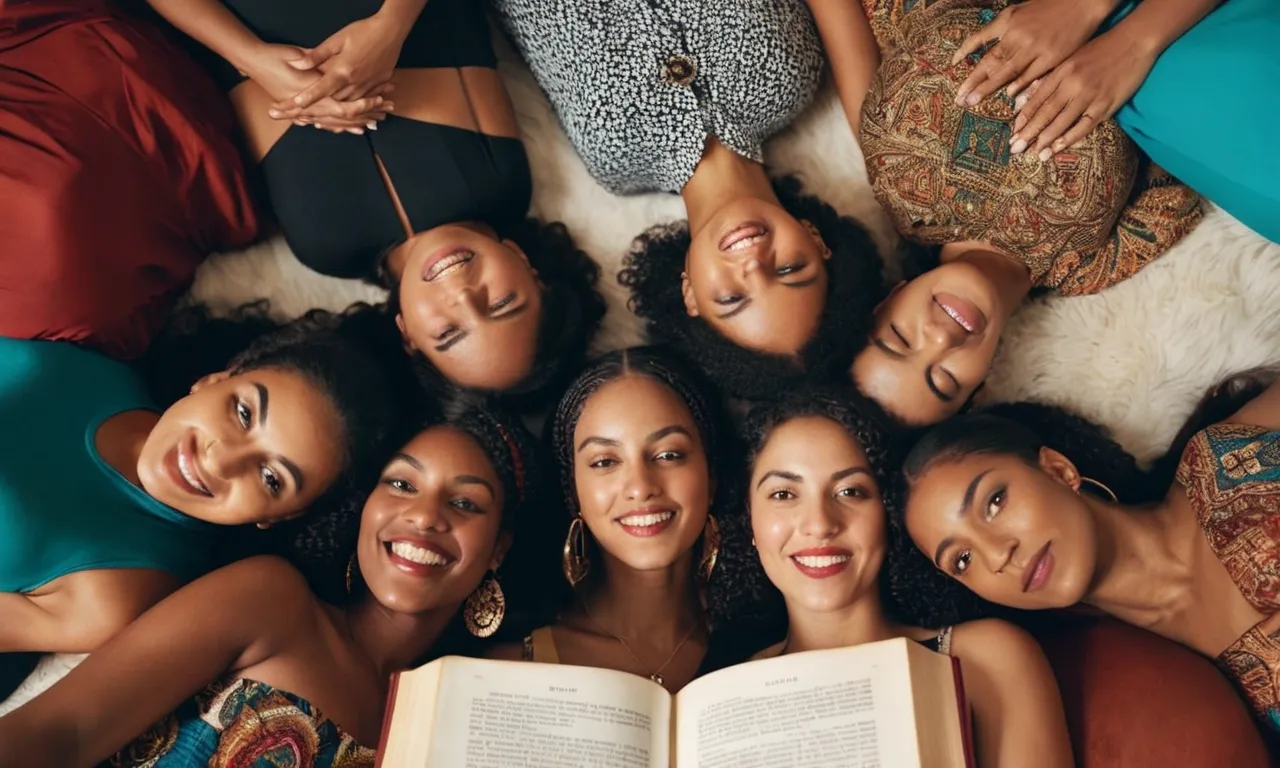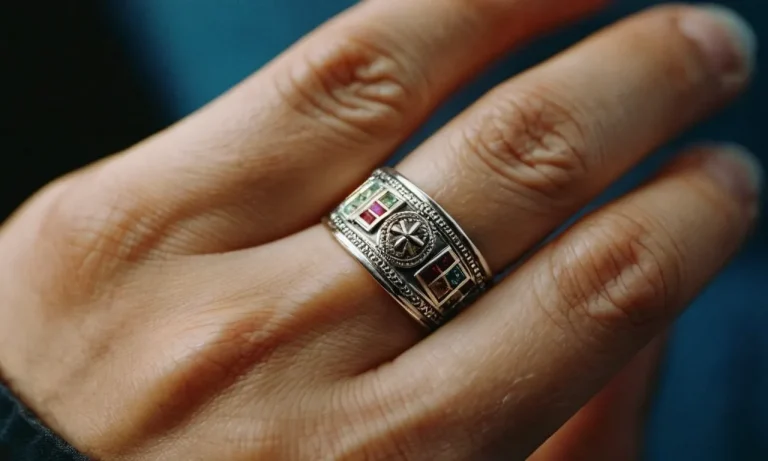What Does The Bible Say About Black History?
The Bible has profound truths to reveal about the value and dignity of all people, regardless of ethnicity, culture or skin color. Though scripture was written long before modern ideas of race emerged, its message speaks powerfully against racism and oppression in all its forms.
If you’re short on time, here’s a quick answer to your question: The Bible teaches that all people are made in God’s image and are equal before Him, condemn racism and oppression, and point to a future where people of every nation will worship God together in equality and peace.
In this article, we will explore key biblical passages about ethnic diversity and dignity, examples of prominent black figures in the Bible, explanations of controversial passages, and the Bible’s vision for reconciliation and equality between all peoples.
All Human Beings Are Made in God’s Image
Genesis 1 Teaches Common Origin for Humankind
The Bible clearly teaches in Genesis 1 that all human beings share a common origin and are made in the image of God. Genesis 1:26-27 states: “Then God said, ‘Let us make man in our image, after our likeness’…So God created man in his own image, in the image of God he created him; male and female he created them.”
This foundational passage affirms the dignity and value of all people, since everyone is made by God and bears His image.
The genealogy of Adam in Genesis 5 further develops the unity of humanity as all persons are descended from the same first parents. Eve is referred to as “the mother of all living” (Genesis 3:20), and all subsequent humans descended from Adam and Eve.
There is no distinction made between races or ethnicities in the creation account, affirming that all share the same lineage and bear God’s image equally.
New Testament Affirms God Shows No Favoritism
The New Testament strongly upholds the Genesis teaching that all humans are made in God’s image and objects of His love. Galatians 3:28 declares: “There is neither Jew nor Greek, slave nor free, male nor female, for you are all one in Christ Jesus.”
This emphasizes the equal standing of all believers in Christ across ethnic, social, and gender differences. The universality of salvation in Christ demonstrates that God cherishes all people without showing partiality.
Furthermore, Acts 10 records the Apostle Peter realizing that God’s plan of salvation includes Gentiles in addition to Jews. Peter declares: “I now realize how true it is that God does not show favoritism but accepts from every nation the one who fears him and does what is right” (Acts 10:34-35).
This removal of barriers between Jews and Gentiles is in accordance with the divine image imprinted upon every human being, regardless of ethnicity.
Examples of Black Biblical Figures
Zipporah: Wife of Moses
Zipporah was the wife of Moses and the daughter of Reuel, who was a priest in the land of Midian (Exodus 2:16-22). She is described in the Bible as being a Cushite, indicating she likely had dark skin.
When Moses fled from Egypt after killing an Egyptian, he met Zipporah at a well and later married her. One interesting story involves Zipporah circumcising her son to save Moses’ life (Exodus 4:24-26). This showed her resourcefulness and commitment to protecting her husband and family.
Ethiopian Eunuch: Early Gentile Convert
The Ethiopian eunuch, who Philip encountered on the road to Gaza, was likely a black African since he had come to Jerusalem to worship from Ethiopia (Acts 8:26-40). This man was reading Scripture but did not fully understand it until Philip explained the gospel message about Jesus to him.
The eunuch believed, was baptized, and went on his way rejoicing. He was one of the first Gentile converts mentioned in the New Testament. This shows that the gospel is for all people of every nation and skin color.
Simon of Cyrene: Carried Jesus’ Cross
Simon of Cyrene was compelled by Roman soldiers to carry Jesus’ cross on the way to His crucifixion (Matthew 27:32, Mark 15:21, Luke 23:26). Cyrene was located in modern-day Libya. Simon was likely a black African pilgrim who had come to Jerusalem for the Passover feast.
We do not know if Simon became a believer at that time, but his sons Alexander and Rufus did later become Christians according to Mark 15:21. Being forced to carry the cross of Christ was likely a pivotal moment in Simon’s life.
Bible Condemns Racism and Oppression
Old Testament Laws Protect Sojourners
The Old Testament contains many laws that protected foreigners and sojourners in ancient Israel. For example, Exodus 22:21 says, “You shall not wrong a sojourner or oppress him, for you were sojourners in the land of Egypt.”
This reminds the Israelites that they were once oppressed as foreigners in Egypt, so they should be kind to foreigners living among them. Leviticus 19:33-34 also says, “When a stranger sojourns with you in your land, you shall not do him wrong.
You shall treat the stranger who sojourns with you as the native among you, and you shall love him as yourself.” This teaches that foreigners should be treated the same as native Israelites.
Other Old Testament laws gave foreigners equal protection and justice under the law (Deuteronomy 1:16-17), allowed foreigners to participate in religious festivals (Deuteronomy 16:14), and even granted them access to cities of refuge (Numbers 35:15).
God clearly cared about protecting foreigners, orphans, widows and other vulnerable groups who could easily be oppressed in ancient societies. These laws laid the foundation for condemning racism and oppression of vulnerable people.
Prophets Condemn Oppression of Poor and Powerless
The prophets often rebuked Israel and Judah for oppressing the poor and needy. Isaiah 10:1-2 says, “Woe to those who decree iniquitous decrees, and the writers who keep writing oppression, to turn aside the needy from justice and to rob the poor of my people of their right.”
Here Isaiah condemns those who use the legal system to rob the poor and deny them justice.
Amos 5:11-12 declares, “Therefore because you trample on the poor and you exact taxes of grain from him, you have built houses of hewn stone, but you shall not dwell in them…For I know how many are your transgressions and how great are your sins—you who afflict the righteous, who take a bribe, and turn aside the needy in the gate.”
This rebukes the rulers of Israel for oppressing the poor to enrich themselves. Other prophetic warnings against oppressing the poor and powerless are found in Jeremiah 5:28, Ezekiel 22:29 and Zechariah 7:10. The prophets made it clear that God opposes oppression of the weak and defenseless.
New Testament Teaches Loving Your Neighbor
In the New Testament, Jesus expanded the definition of “neighbor” in the command to “love your neighbor as yourself” (Leviticus 19:18). In Luke 10:25-37, He told the parable of the Good Samaritan to teach that your neighbor is anyone in need, even those rejected by society.
Paul also taught there is no distinction between Jew and Greek, slave and free, male and female, because all are one in Christ Jesus (Galatians 3:28). This egalitarian theology laid the groundwork for condemning racism, sexism, classism and other forms of oppression.
The early church put Jesus’ inclusive teachings into practice. Acts 6 records how the Greek-speaking and Hebrew-speaking Jewish Christians overcame ethnic divisions to care for widows fairly in the daily distribution of food.
James 2:1-13 condemns showing favoritism to the rich over the poor in the church. In Revelation 7:9, John envisions believers from every nation, tribe, people and language worshiping together before God’s throne.
From Genesis to Revelation, the Bible condemns racism and oppression while promoting justice, equality and human dignity.
Examining Controversial Passages
Curse of Ham Theory Lacks Biblical Basis
The “curse of Ham” theory originated in the 9th century as an attempt to justify the African slave trade. However, it completely lacks biblical support. The theory misinterprets and misapplies the story of Noah and his son Ham in Genesis 9.
According to the story, Ham saw his father Noah naked after Noah had become drunk. When Noah awoke and realized what Ham had done, he cursed Ham’s son Canaan rather than Ham himself. Some later interpreters claimed this curse turned Canaan’s descendants black and destined them for slavery.
However, the curse was on Canaan, not Ham, and it’s highly doubtful the curse had anything to do with skin color.
In reality, the Bible gives no evidence that skin color determines a person’s status or destiny. The Bible affirms that all people are made in God’s image (Genesis 1:27) and that God does not show favoritism among people based on external characteristics (Acts 10:34).
Attempts to use Scripture to justify racism represent gross misinterpretations and distortions that lack any biblical warrant.
Paul’s Writings Should Be Understood in Context
Some people have misinterpreted passages in Paul’s letters dealing with slavery and submission as condoning the oppression of black people. However, these passages must be understood in their proper historical context.
For example, Ephesians 6:5 says, “Slaves, obey your earthly masters with respect and fear, and with sincerity of heart, just as you would obey Christ.”
While this passage seems to condone slavery, it was actually counter-cultural in its original context. Paul was advising Christian slaves on how to live under Roman slavery while still obeying Christ. He was not endorsing the system of slavery itself.
In fact, Paul’s letters contain the revolutionary concept that all believers are equal in Christ regardless of social status (Galatians 3:28). The church later became instrumental in efforts to abolish slavery.
While Paul did not outright oppose the cultural institutions of his day, his writings emphasized human equality before God.
Vision of Future Unity and Reconciliation
Pentecost: Unity Despite Diversity
The New Testament book of Acts describes the day of Pentecost when God poured out His Spirit on believers from varied ethnic backgrounds who had gathered in Jerusalem (Acts 2:1-13). Despite their diversity, the Spirit enabled them to understand one another and created a spirit of unity.
This foreshadowed the reconciliation that would come through faith in Christ between Jews and Gentiles (Eph 2:14-18).
The diversity present at Pentecost fulfills an ancient prophecy that God would one day pour out His Spirit on “all people” (Joel 2:28-29). Peter explains that this took place at Pentecost (Acts 2:16-21). God’s salvation and Spirit were not just for the Jews, but for all nations.
This multi-ethnic gathering that experienced unity by the power of the Spirit serves as a glimpse into God’s intended will for humankind. As people put their faith in Christ, reconciliation would occur across traditional ethnic and social boundaries.
Book of Revelation Portrays Multi-Ethnic Worship
The apostle John’s vision in Revelation 7:9-10 portrays a multi-ethnic multitude worshiping God for salvation through the Lamb. People “from every nation, tribe, people and language” cry out praise together to God and the Lamb who sits on the throne.
This diverse worshiping community reflects reconciliation among people groups accomplished by Christ’s death.
This vision provides a beautiful picture of God’s intended will: Perfect community, diversity within unity. Dr. Tony Evans comments, “One day every color and culture will unite in a song of praise to Jesus for who He is and what He has done in reconciling the world to Himself and bringing diverse peoples together in peace.”
The book of Revelation reveals that ethnically diverse worship is central to the culmination of God’s purposes in redemption. Through faith in Jesus, hostilities and divisions will be superseded by the peace and unity empowered by God’s Spirit.
Conclusion
In examining key biblical texts and themes, we see a consistent message affirming the dignity and equality of all people before God. Though the cultures of biblical times differ vastly from our modern context, the scriptures undermine any argument for racial superiority or oppression based on ethnicity or skin color.
The Bible celebrates diversity within unity under God, condemns favoritism and injustice, and portrays a future multi-ethnic kingdom united in worship of Jesus Christ. As we strive for racial reconciliation, the Bible calls us to humble repentance, Spirit-led reform and Christlike sacrificial love that breaks down walls of hostility between people.








